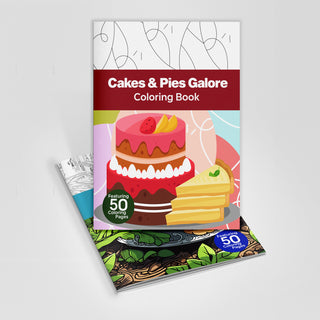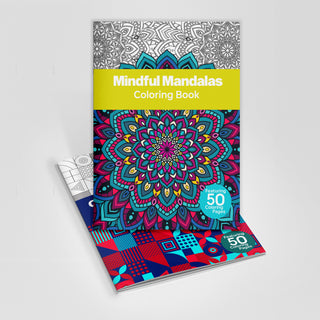Anxiety. It’s a word we hear frequently in our society today. Anxiety is worry or nervousness, and it can be addressed through introspection and self-care, aided by the practice of journal prompts for mental well-being.
Most of us experience feelings of unease before we do something we haven’t done before or even something that is exciting like the feeling you get before you start a 5 km. race or write a test.
When I was growing up I played the piano and competed in various music festivals. I was always a nervous performer and would have lots of butterflies in my stomach prior to playing.
This sort of anxiety is common and is actually not a bad thing. In fact, having a bout of nerves temporarily, then getting over it is good for our mind.
It tells us we can deal with this sort of worry and get through it okay. It makes us stronger.
Sadly, anxiety can be so extreme that it is debilitating. This sort of anxiety keeps people from engaging in activities and even working because they are afraid they will make mistakes and not be able to do the task.
Medication and therapy can help people who suffer from extreme anxiety, and many are able to enjoy a fuller life.
In this article, I look at journaling prompts that can help to lessen anxiety. Come along with me and begin to ease your worries and concerns.
Journal Prompts For Mental Well-Being
When we feel depressed or worried it’s not a good feeling. No one enjoys going through their day feeling this way. We want to feel good in our skin.
Journaling is a great way to steer the mind away from negative feelings. The following examples of journal prompts do just that:
What are some things that make you happy?
What are some things that you’re grateful for?
What was a moment from today that you appreciated?
These prompts get your brain thinking in a different way from worry and anxiety, and focus on positive things that have actually occurred.
In this way you see that there are positive things in your life.
If you want to explore possible reasons for your negative feelings, there are journal prompts here that also do that.
Journal Prompts For Mental Well-Being
1. "What are some coping mechanisms that you use to deal"

2. "What are some things that make you happy?"
3. "What are some things that you’re grateful for?"
4. "What was a moment from today that you appreciated?"
5. "What are some things that you’re struggling with right now?"
6. "What are some things you can do to improve your mental wellbeing?"
7. "What are 3 things you’re grateful for from this week?"
8. "Who is someone in your life that you’re grateful for?"
9. "How do you feel when you’re struggling with depression?"
10. "What are some things that trigger your depression?"
11. "What are 5 things, big or small, that you’re grateful for from this year?"
12. "What are you grateful for today?"
Journaling Prompts For Unhappiness
Negative emotions are not necessarily bad. In fact, there are times when we should feel sad or angry.
For example, if someone treats you badly, it’s only natural that you feel angry and upset.
When I was in line for a promotion and ended up not getting it, I was very upset. I felt angry, confused, and sad. I shed a lot of tears.
The journal prompts in this category help you to explore feelings of anger and sadness.
As you work through these prompts keep in mind that negative emotions are natural, and we should all feel them.
If you find that you experience a lot of anger, focus your attention on the journal prompts about anger such as:
How did you feel after the fight or argument?
What were you feeling before the fight or argument?
How did you express your anger during the fight or argument?
What can you do in the future to manage your anger and conflict better?
Perhaps you want to focus on journal prompts about feelings of sadness.
Why do you think it’s important to feel sadness?
What are some things you can do to increase your sadness?
What are some things that you’re struggling to be sad about?
Journal Prompts For Unhappiness
13. "How did you feel after the fight or argument?"
14. "What were you feeling before the fight or argument?"
15. "How did you express your anger during the fight or argument?"
16. "What can you do in the future to manage your anger and conflict better?"
17. "How can you tell if you’re feeling sad?"
18. "Why do you think it’s important to feel sadness?"
19. "What could you have done differently to avoid the fight or argument?"
20. "What is sadness to you?"
21. "What are some things you can do to increase your sadness?"

22. "What are some things that you’re struggling to be sad about?"
23. "Why do you think you got into a fight or argument?"
24. "What are the consequences of not being sad?"
25. "What happened during the event that led to the fight or argument?"
26. "What are some things that make you sad?"
Journaling Prompts About Happiness
Sometimes we struggle to feel happy. Life is hard and there are things that happen every day that can make it hard to smile.
Just the regular day-to-day demands of getting up, getting your household going, dealing with work, coming home and making dinner, and then getting children to bed can be exhausting.
There are things we can include in our lives that can make life better, and provide us with happiness.
Friendship is one of those things. A number of the journaling prompts in the following list focus on friendship.
When you consider what things you look for in a friend, or what has been your most meaningful friendship this brings friendship into focus.
This can help you to seek out friends who are perhaps better suited to you and your interests.
Take a look at the list of prompts and take a step toward greater happiness through solid, gratifying friendships.
Journal Prompts About Happiness
27. "What are the qualities you look for in a friend?"
28. "How can you tell if you’re feeling happy?"
29. "How do you define a friend?"
30. "What are some things that you’re struggling to be happy about?"
31. "What are the consequences of not being happy?"
32. "How do you know if someone is a true friend?"
33. "What has been your most meaningful friendship and why?"
34. "What is happiness to you?"
35. "What role do friends play in your life?"
36. "Why do you think it’s important to be happy?"
37. "How have your friendships changed over the years?"
38. "Why do you think it’s important to have friends?"
Journaling Prompts For Calming The Mind
Sometimes our mind seems to work against us. We know that physical activity, eating healthy foods, and getting enough sleep can have a major positive impact on our well-being.
Yet, we get caught up in life. We get consumed by the demands of life and our mind gets jumbled with everything we have to do every day.
We can benefit from taking some time to reset, declutter our thoughts, and calm our mind.
The first step is to recognize what the stressors are in your life.
The next step is to see if you can decrease those somehow, and to look for ways to build calming rituals into your life.
Using positive affirmations, and inspiring, motivating quotes can be very helpful. Listing ways you can practice self-care for the week can also be beneficial.
Writing this in your journal gives an intentional focus, and will make it more likely to happen.
Journal Prompts For Calming Mind
39. "What do you need in this moment?"
40. "What can you do to improve your physical wellbeing?"

41. "What are your top stressors?"
42. "How has your anxiety helped you in the past?"
43. "List five things you’re grateful for."
44. "List different ways you can practice self-care this week."
45. "Write down positive affirmations to practice each morning."
46. "Write a list of compliments to yourself."
47. "Did you feel stressed or anxious today? What triggered that feeling?"
48. "Make a list of five quotes that inspire you."
49. "Brainstorm ways to bring more calm into your life."
50. "Describe the thing you look forward to every day."
51. "What could you do right now that would make you happy?"
52. "What brings you joy?"
53. "Write a letter to someone explaining your anxiety."
Journaling Prompts For Relationship Anxiety
We all wish we could have great relationships with our family, friends and work colleagues with few arguments, and lots of moments of happiness, but often this is not how it usually goes.
To form better quality relationships we need to do a little soul searching. What are the stressors in our life? How do we bring those stressors into our relationships?
Do we expect our partner to be everything to us? If so, that’s not really fair and will put a lot of strain on your relationship as resentment is sure to build in the other person.
Maybe there are relationships in your life that aren’t giving you what you need.
In order to know this you have to clarify what things you need in another person.
The journaling prompts in this list will help you figure these things out and help you on the path to having fulfilling and gratifying relationships.
Journal Prompts For Relationship Anxiety
54. "Who can always relieve your anxiety?"
55. "What is your anxiety trying to tell you?"
56. "If you wrote a love letter to yourself, what would it say?"
57. "How can you treat yourself more kindly?"
58. "How do you cope with stress?"
59. "Write about a time when you didn’t feel anxious. Noting your surroundings and who was present."
60. "Where do you feel anxiety or tension in your body?"

61. "What is worrying you most right now?"
62. "What was your greatest fear, and how did you overcome it?"
63. "When did your anxiety begin?"
Journaling Prompts To Calm Your Worries
Ever have those times when you’re a worrywart; when you just can’t shake the negative thoughts about some responsibility coming up, or an uncomfortable appointment?
There are so many things that can make us feel worried. Are there ways we can deal with these worries so that we can function more calmly?
Journaling is a great way to sort through your worries and deal with them in a way that will allow you to be calmer.
The prompts in this category look at worries from a number of different angles. These prompts get you understanding the worry and the root cause.
They also direct you in ways that help you to cope with the worry, and reduce its impact on you.
See which prompts you connect with, and put those worries to rest.
Journal Prompts To Calm Your Worries
64. "One interesting part of my dreams of late is."
65. "Today I could not live without."
66. "The people who made me feel “important” when I was young and how they made me feel that way."
67. "I felt the most free in life at this age and here is what I was doing"
68. "Three people who taught me about science and what I learned"
69. "If I imagine my worried thoughts as a cartoon character, they would look and sound like."
70. "The day I discovered I could make people laugh."
71. "When I imagine I have no problem to solve, here is what is left."
72. "I feel stress in this part of my body and it feels like___________."
73. "The story of my first crush is."
74. "When I gaze at my hand, it reminds me of."
75. "I enjoy myself the most when."
76. "If I could spend all day with anyone, here’s who and here’s what we would do."
77. "The most noticeable thought in my mind today is."
78. "I know my best characteristics are."
79. "A year from now I think I’d like to."
80. "I feel the most satisfied in life when I do these things."

Frequently Asked Questions
What Are Journal Prompts For Mental Well-Being?
Journal prompts for mental well-being are thoughtful questions or prompts designed to guide your journaling practice towards promoting emotional balance, self-awareness, and overall psychological health.
How Can Journaling With Prompts Improve My Mental Well-Being?
Journaling prompts encourage introspection, help process emotions, and provide an outlet for self-expression, contributing to reduced stress, increased self-understanding, and improved mood.
Are There Specific Journal Prompts For Managing Stress And Anxiety?
Yes, journal prompts can focus on identifying stress triggers, exploring coping strategies, and fostering a sense of calm, helping you manage stress and anxiety more effectively.
Can Journaling With Prompts Boost Self-Esteem And Confidence?
Certainly. Journal prompts can encourage positive self-talk, celebrate achievements, and challenge negative self-perceptions, ultimately leading to improved self-esteem and confidence.
How Often Should I Use Journal Prompts For Mental Well-Being?
The frequency depends on your preferences and needs. Regular use, whether daily or weekly, can help establish a consistent practice and reinforce positive mental habits.
Continue Reading 👉: 120+ Trauma Journaling Prompts To Heal Your Soul






















